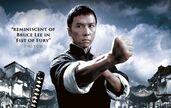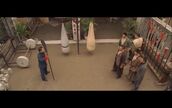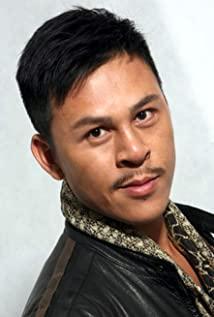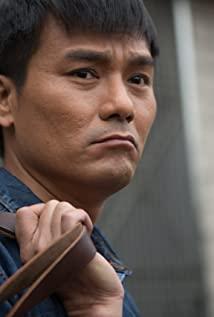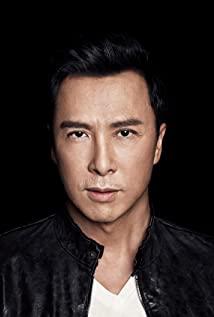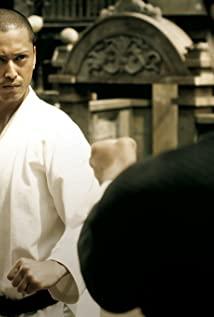――Han Xi
watched the premiere of "Ip Man" yesterday. Two feelings, Huang Zijiao's hosting style is really lackluster, and the level of on-site director of the movie channel is really inferior. Then go to China Film to watch the feature film.
Since "Slaying the Wolf", "Ip Man" is the fourth film made by Donnie Yen and Wilson Yip. Judging from the first three "Slaying the Wolf", "Dragon Tiger Gate" and "Fuse", Donnie Yen's fighting scenes have almost reached an impeccable level, and the movies always have relatively weak problems in terms of plots. And this "Ip Man" obviously put a lot of effort into the script, but it is a pity that although the story is not thin, there are still obvious mistakes in the clues and plots.
In this film, Donnie Yen's fighting scenes are still wonderful, even making people breathless, and the performance of the close-fitting force in Wing Chun is also very outstanding. As far as kung fu is concerned, this film is absolutely top-notch, and there is no need to say much here, especially for someone like me who doesn't know anything about martial arts, so I don't have the capital to comment.
The film is basically divided into two parts, but is composed of three clues. The two parts are of course before the Anti-Japanese War and during the Anti-Japanese War. Here is a point that needs to be explained. The transition of the film to these two time periods is a complete failure. The planes produced by the computer can't be realistic at all. It is said that a subtitle even dissolves the characteristics of the film's audio-visual language itself. During the War of Resistance Against Japanese Aggression, the people were killed, and the images of plaster flags on the streets had an irreversible influence in the hearts of the Chinese people. Therefore, the time change and the change of the background can be fully reflected in the following shots, and the plane flew over. And the existence of those subtitles is undoubtedly superfluous.
Although there are not many superfluous places in the film, it greatly affects the interest of the audience. The first is the wooden stump made in the title, which is very rough and has no texture. It must be specially designed for the theme of "Wing Chun Boxing". (Of course, it was also designed for the first scene transition), but the author believes that since Ip Man is the master of Wing Chun, there is no need to emphasize the concept of Wing Chun at all. The title only needs to express Ip Man himself with solemn subtitles and music. One thing that needs to be explained here is that I always think that the title is an important part of a film, and it must be strictly in line with the theme or style of the film.
Secondly, the subtitles are a bit wordy. Except for the useless subtitles in the transition, the subtitles at the beginning and the end are very purposeful. In order to highlight the background of Ip Man's growth, in order to highlight Ip Man's experience in Chinese martial arts after he moved to Hong Kong, he has a good understanding of Chinese martial arts and chant. The contribution made by the development of Chunquan, but the two paragraphs are not essential, so that the audience can see only a resume in a short time, not a text containing spirit, this is obviously a failure, no matter the film Whether it can be characterized as a biographical film (in fact, I do not agree with this statement), the subtitles must be concise and directly cut to the spiritual essence of the film.
As mentioned earlier, the film consists of three clues, the most dramatic is undoubtedly the struggle between Ye Wen and the Japanese, and the other two are the life of Ye Wen and the grievances between Ye Wen and Jin Shanzhao. At this time, the question arises, that is, as mentioned above, whether this film can be regarded as a biographical film, I believe that all audiences will not agree, then we can see that it is an interception of Ip Man's life. A fragment is performed.
It's not a bad idea to use a certain piece of a real person's life, especially a piece full of national spirit against the Japanese, and it has a lot to do. But unfortunately, the screenwriter's idea is much more complicated. The purpose of introducing the first part is to render the character of Ye Wen, including his character, his attitude towards others, etc. In short, the screenwriter should One part talks about people, and the second part talks about things. Talking about people is of course a kind of biographical thinking, while talking about things is an interception of fragments. Both kinds of thinking act in the same movie, which creates a sense of confusion. The audience does not know which of the three clues is the better. main.
Judging from the length of the film and the conflicts between the characters, there is no doubt that the struggle between Ip Man and the Japanese is the most eye-catching, and the production is rich, it seems that it should be the main line of the film, but this clue is only It runs through the second part of the film and has nothing to do with the first part.
Then let's look at the other two clues that run through the whole article, one of which is the clue that Jinshan was looking for. In the film, Jin Shan looked for this character very well, which is unforgettable, but the confrontation between him and Ip Man has only two scenes, and it is completely broken in the middle of the film. Obviously, this clue cannot become the main line of the film, and from the perspective of the two scenes, it does not play any auxiliary role in the main line of the film, which is a pity.
At the back of the film, a sentence from the translator mentioned that Jin Shanzhao told the Japanese about Ye Wen's whereabouts. There seems to be a question of rationality here, that is, will Jinshan inform the Japanese when looking for such a person? The author does not think so, because in the limited space, Jin Shanzhao's image of the grass is very prominent, and there is no deep hatred between him and Ye Wen, so it is somewhat far-fetched to set such a character as an informer. More importantly, as a clue, Jinshan disappeared completely after looking for this character, which made the author very puzzled. (It is said that in the original version, Miura was very disdainful of Jinshan's whistle-blower, so he killed him. This ending was castrated by the Electric Cut Bureau. Whether or not this is the case, Jinshan's role as a character is very brilliant, but not It's a pity to be fully integrated into the film.)
Another thread that runs through the entire play is Ip Man's family life, Ip Man's attitude towards life and the relationship between Ip Man and his wife. Probably due to the character of the real characters, the film's performance of this clue can be said to be quite satisfactory, and there is no strong dramatic conflict. It is also for this reason that for this film, it cannot constitute the main line, and can only be expressed as a Sub-line gestures appear to assist the main thread of the film.
When the three clues are placed here, we find the biggest problem with the film, which is that this is a film without a real main line. Although the struggle with the Japanese is intense, dramatic, and highly visible, it does not run through the entire play. If it is to be regarded as the main line of the film, then the first part of the film is obviously too long, and Jinshan did not timely assist the main line when looking for this clue. Of course, this is a creative thinking of intercepting fragments.
Judging from the creative thinking of making biographies, although the clue of fighting against the Japanese seems to solve the psychological motivation of a Ye Wen apprentice (this is the reason why Ye Wen can become a master), it is too strong. Under the obvious contradictions, the performance of Ye Wen's inner world seemed a little pale.
It is precisely because the film is under the influence of two creative thinking, we can't see a real main line, so the understanding of the character of Ip Man is also shallow. But he couldn't recognize him as the master of the generation, Ye Wen. I'm afraid this is the biggest failure of the film!
In addition, it is said that the translator Li Zhao in this film was mistakenly killed by angry ordinary people after killing the Japanese officer. Is this true? This is a very tragic and completely convincing character, what a pity!
Han Xi
2008-12-11 in Tongzhou
View more about Ip Man reviews





